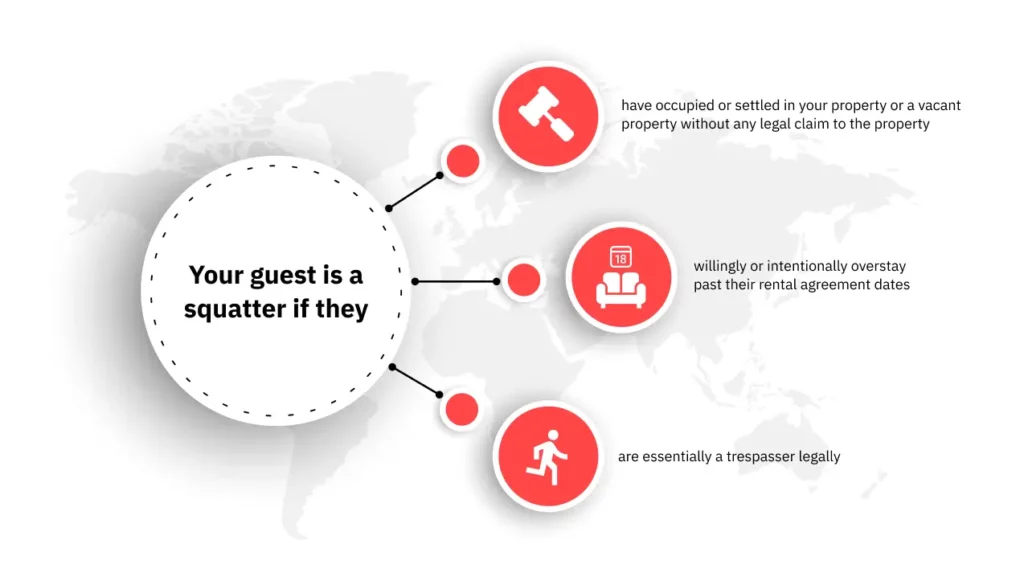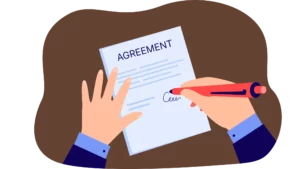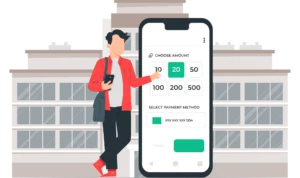Updated: September 11, 2024
Airbnb squatters are among the things that hosts dread. As more and more people are becoming digital nomads, the fear of getting an Airbnb squatter is also increasing. Though you rarely end up with a guest who would just not leave, you must be prepared!
Educating yourself about squatters and how to evict an Airbnb squatter is important to ensure you do not lose money.
What is an Airbnb squatter?
An Airbnb squatter is someone who has stayed at your property for an extended period even after the agreed-upon period expires. Traditional squatters have often used ‘adverse possession’ to work in their favour when claiming ownership of abandoned homes or properties. Adverse possession is a legal principle wherein people can acquire legal ownership of someone else’s property. According to the regulation, they would either acquire possession or reside on the property for a certain period of time.


Avoiding an Airbnb squatter without getting negative reviews or losing money is important.
How to identify an Airbnb Squatters?
You must be able to identify a potential Airbnb squatter in the early stages. Only then will you be able to take appropriate action.
- They have a suspicious guest profile:
- Check if their profile is incomplete: If they only have a random picture and name with nothing else filled out – they might be bad news.
- System-generated email ID: Make sure to check the email ID that they’re using to book a stay with you.
- Blurry or unclear images: Verify their authenticity by checking the images they have uploaded to the platform
- They want to stay longer:
- Before you confirm your reservation, read through their request. Ask yourself if they need the booking they are making.
- Ask them the following questions:
- Why are you travelling?
- Do you have an itinerary?
- Do you have any questions for me?
- Do you want to know anything about the locality?
- This will help you identify green flag guests and craft personalized guidelines and manuals for them. Not only can you make your life easier, but you can also improve their guest experience.
- Keep track of what’s going on in your locality. If there’s a major event, you might receive many requests for a one-night stay. You should up your prices and maintain an appropriate Airbnb pricing strategy to ensure you can maximize your bookings during this surge in demand. You can use PriceLabs Dynamic Pricing to ensure that you automatically adapt your pricing to the demand in your locality.
- They do not have an online presence:
- Check their ID and see if the identification they provided is original. While this might seem a little too much, it can help you avoid dealing with an Airbnb squatter.
- You can ask them to send you any form of identification—a driver’s license, passport, or local identification card.
How to deal with Airbnb Squatters?
Evicting an Airbnb squatter might take different measures at different stages. However, there are some ground rules that you can follow to avoid an Airbnb squatter. Ensure you clearly communicate the consequences in the beginning to avoid confusion. Even the best Airbnb hosting tips and tricks may not prepare you for an Airbnb squatter.
You will host a wide variety of guests during your Airbnb hosting journey. There will be good ones, and there will also be bad ones. All you can do is ensure you are equipped to handle any situation. This does not mean that you take the extreme step with every guest. With experience, you can gauge each guest asking for a booking and differentiate the good from the bad. Go with your gut and take extreme steps only when necessary when dealing with an Airbnb squatter.
1. Opt out of Instant booking
When you are subscribed to Instant Booking, you are not allowed to review the guest before accepting the booking. The booking is confirmed as soon as the guest makes the booking. This does not give you time to review the guests’ profiles and legitimacy before accepting the booking.
If you review after accepting the booking and then go with cancellation, Airbnb might not like it! You might go a few steps below and maybe also get flagged.
The other side of the coin would be that you potentially lose out on automation. You would have to be more present and put a lot more energy and effort into getting each booking. This would also mean increased wait time for your guests. Consider this carefully before opting out of instant booking to avoid an Airbnb squatter.


2. Always screen the guest and the booking
It can not be stressed enough that screening your guests is the most important step in managing a vacation rental. This can help you avoid all sorts of horror stories – parties, Airbnb squatter, thrashers, illegal renters, etc.
You can choose only to host Verified Airbnb guests. These people have confirmed their identity on the platform by submitting government-issued identification. This will help you get one step of your verification out of the way. You now have a blanket of protection from Airbnb itself as well.
3. Request a security deposit
People wouldn’t pay up unless they were looking to obey the rules. Guests who plan to overstay are looking to stay for as long as possible at no cost. Requesting a security deposit will drive away those unwilling to pay extra for a comfortable stay.
Even if they overstay their welcome, you are protected financially by the security deposit they had paid. It is important, however, to make sure you are asking for a reasonable price that a genuine guest would accept.
Remember that a person booking your property for just a weekend might not be willing to pay the security deposit. This is when you would have to be flexible. A person coming in just for a conference or an event might not necessarily be an Airbnb squatter. It then becomes important gauge your guest before asking for a security deposit. This is where a contract comes in. You can still be protected without a security deposit.
4. Get a Vacation Rental Contract
Each state has a different law regarding tenants and guests. In California, if a guest has stayed for more than 30 days, they would qualify as a tenant. So if a squatter has stayed for 30 days, you would have to take them to court to evict them.
You must document everything in the vacation rental contract. This way, both you and your guest are aware of everything. You should include your ADR, cancellation policy, check-in and check-out dates, late check-out fee, security deposit details, and any other details you think might be important to add. Remember to sign the contract before they enter your property for the stay if you believe this person might be a potential Airbnb squatter.
5. Maintain a timeline and proof to support it during eviction
The key is documentation when you have an Airbnb squatter at your property. Through the Airbnb app, make sure you document everything. Right from when they check in to when they check out. Have you had any issues during their stay? Document it on the app. This will create a paper trail in your favor. As long as you have proof of everything that has happened, a court of law would be able to help you. If you don’t, it immediately becomes hearsay, and the whole situation becomes tricky.
6. Get Airbnb squatter insurance
Most insurance companies have squatter insurance. Remember to get this included in your vacation rental insurance. Remember that not all real-estate insurance is the same. As a vacation rental owner, you have specific needs that need to be addressed.
It is important to get Airbnb squatter insurance. If you end up hosting a squatter, the insurance will help cover any losses incurred during an eviction.


Airbnb Squatters Rights by U.S. States
- Continuous Possession: Squatters must continuously occupy the property without interruption for the specified period.
- Open and Notorious: The occupation must be obvious and known to others, not hidden.
- Color of Title: Possession of a document that appears to give the squatter legal ownership, even if it is legally defective.
- Payment of Property Taxes: In some states, squatters must pay property taxes to claim adverse possession.
| State | Squatter Rights | Relevant Laws and Notes |
|---|---|---|
| Alabama | Squatters can gain rights after 10 years of continuous possession. | Adverse possession requires continuous possession, payment of property taxes, and use of the property. |
| Alaska | Squatters can gain rights after 7 years of continuous possession. | Adverse possession requires continuous and notorious possession. |
| Arizona | Squatters can gain rights after 10 years of continuous possession. | Requires continuous, open, and notorious possession. |
| Arkansas | Squatters can gain rights after 7 years of continuous possession. | Must be continuous, open, and notorious. |
| California | Squatters can gain rights after 5 years of continuous possession. | Must pay property taxes and have continuous, open, and notorious possession. |
| Colorado | Squatters can gain rights after 18 years of continuous possession. | Reduced to 7 years if the squatter has color of title and pays property taxes. |
| Connecticut | Squatters can gain rights after 15 years of continuous possession. | Requires continuous, open, and notorious possession. |
| Delaware | Squatters can gain rights after 20 years of continuous possession. | Requires continuous, open, and notorious possession. |
| Florida | Squatters can gain rights after 7 years of continuous possession. | Must pay property taxes and have continuous, open, and notorious possession. |
| Georgia | Squatters can gain rights after 20 years of continuous possession. | Reduced to 7 years with color of title. |
| Hawaii | Squatters can gain rights after 20 years of continuous possession. | Requires continuous, open, and notorious possession. |
| Idaho | Squatters can gain rights after 20 years of continuous possession. | Requires continuous, open, and notorious possession. |
| Illinois | Squatters can gain rights after 20 years of continuous possession. | Reduced to 7 years with color of title and payment of property taxes. |
| Indiana | Squatters can gain rights after 10 years of continuous possession. | Requires continuous, open, and notorious possession. |
| Iowa | Squatters can gain rights after 10 years of continuous possession. | Requires continuous, open, and notorious possession. |
| Kansas | Squatters can gain rights after 15 years of continuous possession. | Reduced to 7 years with color of title and payment of property taxes. |
| Kentucky | Squatters can gain rights after 15 years of continuous possession. | Requires continuous, open, and notorious possession. |
| Louisiana | Squatters can gain rights after 30 years of continuous possession. | Reduced to 10 years with just title and possession in good faith. |
| Maine | Squatters can gain rights after 20 years of continuous possession. | Requires continuous, open, and notorious possession. |
| Maryland | Squatters can gain rights after 20 years of continuous possession. | Requires continuous, open, and notorious possession. |
| Massachusetts | Squatters can gain rights after 20 years of continuous possession. | Requires continuous, open, and notorious possession. |
| Michigan | Squatters can gain rights after 15 years of continuous possession. | Requires continuous, open, and notorious possession. |
| Minnesota | Squatters can gain rights after 15 years of continuous possession. | Requires continuous, open, and notorious possession. |
| Mississippi | Squatters can gain rights after 10 years of continuous possession. | Requires continuous, open, and notorious possession. |
| Missouri | Squatters can gain rights after 10 years of continuous possession. | Requires continuous, open, and notorious possession. |
| Montana | Squatters can gain rights after 5 years of continuous possession. | Must pay property taxes and have continuous, open, and notorious possession. |
| Nebraska | Squatters can gain rights after 10 years of continuous possession. | Requires continuous, open, and notorious possession. |
| Nevada | Squatters can gain rights after 5 years of continuous possession. | Must pay property taxes and have continuous, open, and notorious possession. |
| New Hampshire | Squatters can gain rights after 20 years of continuous possession. | Requires continuous, open, and notorious possession. |
| New Jersey | Squatters can gain rights after 30 years of continuous possession. | Requires continuous, open, and notorious possession. |
| New Mexico | Squatters can gain rights after 10 years of continuous possession. | Requires continuous, open, and notorious possession. |
| New York | Squatters can gain rights after 10 years of continuous possession. | Requires continuous, open, and notorious possession. |
| North Carolina | Squatters can gain rights after 20 years of continuous possession. | Reduced to 7 years with color of title. |
| North Dakota | Squatters can gain rights after 20 years of continuous possession. | Reduced to 10 years with color of title. |
| Ohio | Squatters can gain rights after 21 years of continuous possession. | Requires continuous, open, and notorious possession. |
| Oklahoma | Squatters can gain rights after 15 years of continuous possession. | Reduced to 5 years with color of title and payment of property taxes. |
| Oregon | Squatters can gain rights after 10 years of continuous possession. | Requires continuous, open, and notorious possession. |
| Pennsylvania | Squatters can gain rights after 21 years of continuous possession. | Requires continuous, open, and notorious possession. |
| Rhode Island | Squatters can gain rights after 10 years of continuous possession. | Requires continuous, open, and notorious possession. |
| South Carolina | Squatters can gain rights after 10 years of continuous possession. | Requires continuous, open, and notorious possession. |
| South Dakota | Squatters can gain rights after 20 years of continuous possession. | Requires continuous, open, and notorious possession. |
| Tennessee | Squatters can gain rights after 7 years of continuous possession. | Must have color of title and pay property taxes. |
| Texas | Squatters can gain rights after 10 years of continuous possession. | Reduced to 3 years with color of title. |
| Utah | Squatters can gain rights after 7 years of continuous possession. | Requires continuous, open, and notorious possession and payment of property taxes. |
| Vermont | Squatters can gain rights after 15 years of continuous possession. | Requires continuous, open, and notorious possession. |
| Virginia | Squatters can gain rights after 15 years of continuous possession. | Requires continuous, open, and notorious possession. |
| Washington | Squatters can gain rights after 10 years of continuous possession. | Requires continuous, open, and notorious possession. |
| West Virginia | Squatters can gain rights after 10 years of continuous possession. | Requires continuous, open, and notorious possession. |
| Wisconsin | Squatters can gain rights after 20 years of continuous possession. | Requires continuous, open, and notorious possession. |
| Wyoming | Squatters can gain rights after 10 years of continuous possession. | Requires continuous, open, and notorious possession. |
Key Takeaways
- Squatters are guests who refuse to clear your property even after their stay has officially ended.
- It is important to identify squatters even before they arrive at your property to avoid issues in the future.
- Check if their profile has reviews
- Check if their profile pictures are original
- Verify their profile with government issued IDs
- How to deal with an Airbnb squatter?
- Opt out of instant booking
- Always screen the guest and the booking
- Request a security deposit
- Get a Vacation Rental Contract
- Maintain a timeline and proof to support it during eviction
- Get Airbnb squatter insurance
Conclusion
It is important to act immediately if you are hosting an Airbnb squatter. It is a rare case, but important to prepare for it. Let’s hope you never have to face an Airbnb squatter. Even if you run a tight vetting ship, there might be a few leaks. You might end up hosting an overnight party that you never wanted or a squatter! If you find yourself in such a situation, don’t panic. Buckle up and take immediate action.
Frequently Asked Questions
1 What if an Airbnb guest doesn’t leave?
Instances of guests refusing to leave are exceedingly uncommon; however, should such a scenario arise, Airbnb is committed to assisting you in resolving the issue with your guest. If you encounter such a circumstance, promptly inform Airbnb’s round-the-clock support team, and they will promptly reach out to assist you.
2 Can an Airbnb host evict?
Certainly! If guests violate the house rules, you can ask them to leave. However, contacting Airbnb beforehand is crucial to ensure they know the situation. Take the time to review the house rules of other hosts to gather insights on how they address noise and disruptive behaviour.
3. Does airbnb protect against squatters?
Airbnb provides a Host Guarantee, which covers up to $1 million in property damage. However, this does not specifically address issues with squatters but can help with damages caused by guests.








